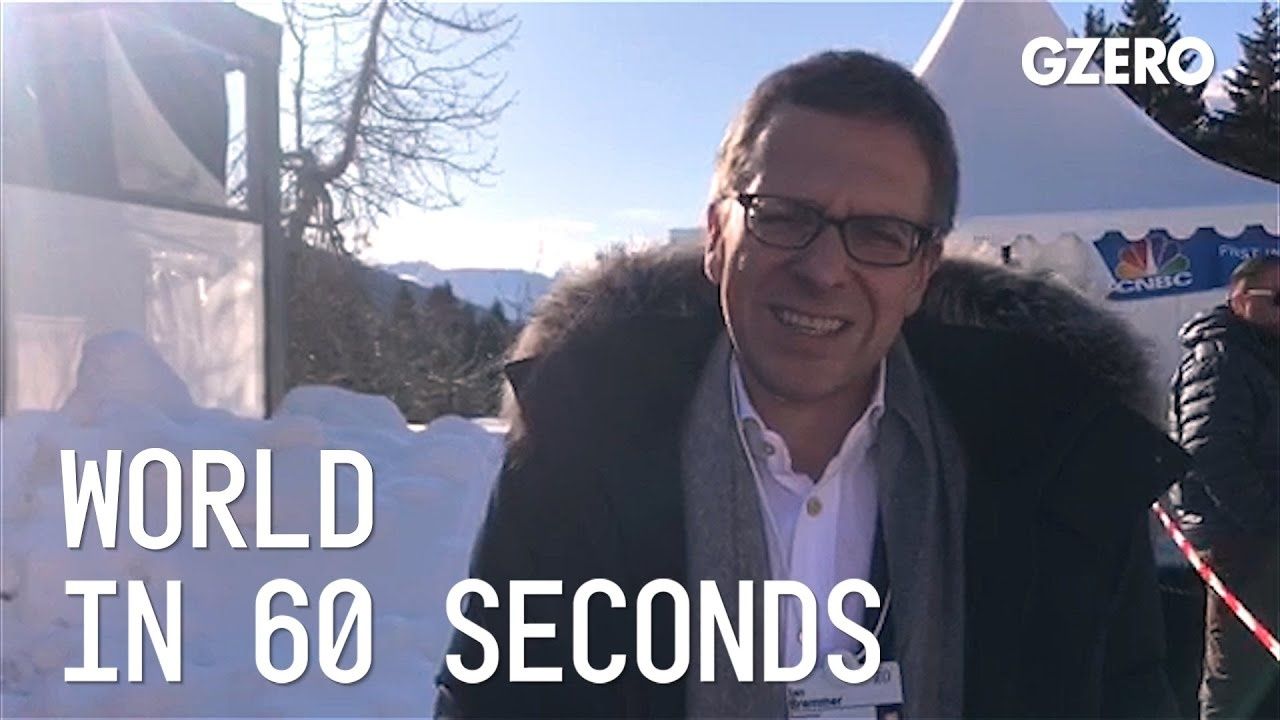January 22, 2020
Ian Bremmer joins us from the World Economic Forum in Davos, Switzerland to provide his analysis on the news of the day in global politics:
What stood out in President Trump's Davos speech and how is it received?
Well, I mean, you know, his victory lap stuff. I mean he's talking a lot about how amazing the economy is and the trade deals is getting done that are better than ever. Look, he has some actual accomplishments to trumpet now. His exaggerations were pretty great. How it was received as interesting; In the crowd, some tittering, people shaking their heads. But the reality, we're talking privately, is they like a lot of what he's doing compared to a lot of the Democrats that are running. Remember, these are CEOs of industry. These are financial titans. They're much more aligned with Trump than they are say, Greta on the environment. Important to know that when you think about how people make decisions.
The Senate impeachment trial has begun. What are your expectations?
Expectations? That he's going to get acquitted, the president, on an almost perfectly party line vote. That's going to anger the Democrats immensely, will make them feel like the electoral process itself is delegitimized. If it's a tight election, it's going to be a contested outcome. I fear that that is where we are heading.
What is going on with Russia and Putin's proposed constitutional changes?
Well, you got a new government in Russia. It looks a lot like the old government, but Prime Minister Medvedev is gone. You've got this new entity that is potentially one that Putin will end up running. It's a Kazakhstan type thing. What do you do when you want to stay president for life, but you're stuck at the end of this term in 2024? He's just setting up for the long term and Putin's going absolutely nowhere.
More For You
Most Popular
With the US leading production and China driving new reactor development, Bank of America breaks down the who, what, where, when, and why behind nuclear’s return. Stay ahead of global energy trends with Bank of America Institute.
Chris, an Army veteran, started his Walmart journey over 25 years ago as an hourly associate. Today, he manages a Distribution Center and serves as a mentor, helping others navigate their own paths to success. At Walmart, associates have the opportunity to take advantage of the pathways, perks, and pay that come with the job — with or without a college degree. In fact, more than 75% of Walmart management started as hourly associates. Learn more about how over 130,000 associates were promoted into roles of greater responsibility and higher pay in FY25.
Last week, at the Munich Security Conference, a group of global technology providers, including Microsoft, announced the Trusted Tech Alliance — committed to shared, verifiable principles for trusted, transparent, and resilient technology across borders. At a moment of economic volatility and zero-sum technological competition, countries and customers are demanding greater accountability from technology providers. The Alliance addresses this by bringing together companies from across Africa, Asia, Europe, and North America around shared commitments: transparent governance, secure development practices, supply chain oversight, open digital ecosystem, and respect for the rule of law — ensuring the benefits of emerging technologies strengthen public trust while driving job creation and economic growth. Explore the Trusted Tech Alliance here.
© 2025 GZERO Media. All Rights Reserved | A Eurasia Group media company.
